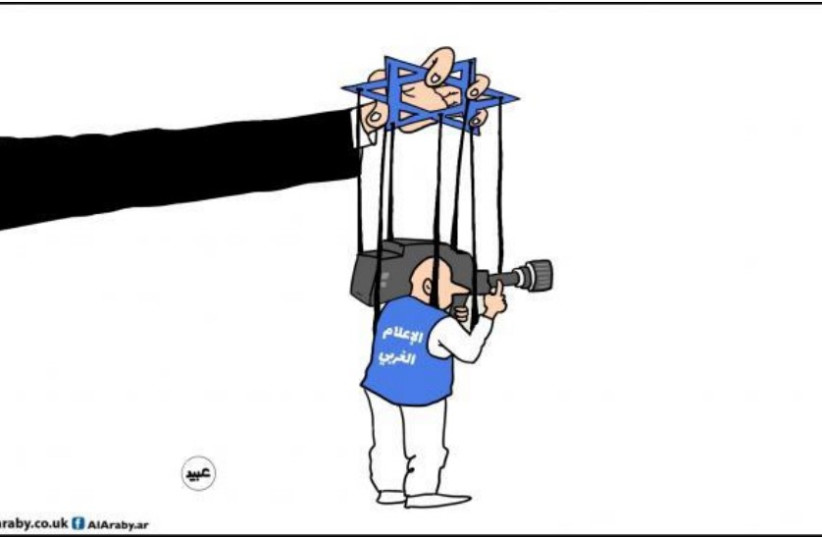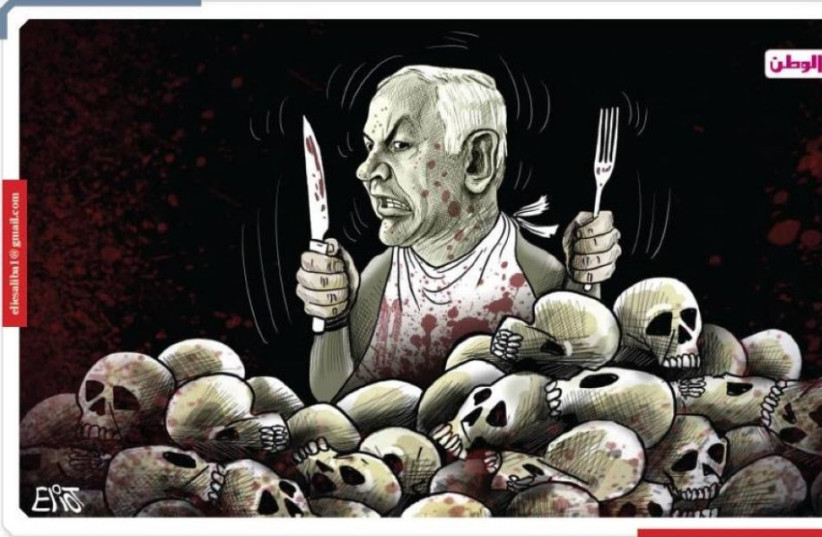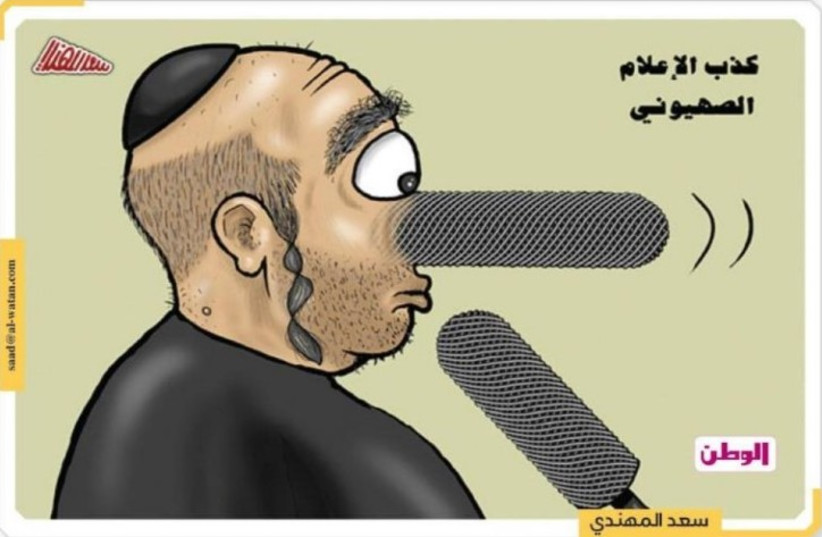In the wake of the October 7 Hamas massacre and Israel's subsequent war against Hamas in Gaza, the Anti-Defamation League (ADL) has released a report highlighting the prevalence of hateful antisemitic conspiracy theories and tropes in political cartoons published in the Arab press.
The report painted a troubling picture of the use of these offensive themes, which have gained momentum since the start of the war. The ADL's assessment delved into the political cartoons featured in numerous newspapers across the Middle East, including those published in Arabic-language newspapers in the United Kingdom. The findings revealed the widespread use of hateful antisemitic tropes, including the unfounded claim that Jews control US politics, comparisons of Israel and its leaders to Hitler, and frequent references to the blood libel – a baseless accusation that Jews consume the blood of their victims as part of a perverse religious ritual.
The report, titled "Antisemitism in Arab Cartoons During the Israel-Hamas War," unearthed numerous instances of blatant antisemitism prominently featured in highly circulated newspapers and websites across the region. These offensive depictions were found in publications from Bahrain, Egypt, Jordan, Kuwait, Libya, Morocco, Oman, the Palestinian Authority, Qatar, and Saudi Arabia.

These depictions include Israel being portrayed as a Jewish Star adorned with a Hitler-style haircut and mustache, as seen in Al-Masri Al-Yawm Egyptian newspaper on December 5. In another instance, a cartoon in Al-Arabi Al-Jadid in the UK on December 2 depicted a Jewish puppeteer marked by the Star of David, exerting control over the "Western media."
Further illustrations from the report reveal the depth of this issue. For example, a cartoon published on November 18th in Al-Masry Al-Yawm depicted Israel "raising its flag on Shifa Hospital," with the flag transformed into a Nazi swastika and the "hospital" grimly represented by skulls. On November 16, Al-Sharq in Qatar featured a blood-spattered Israeli prime minister holding up a fork and knife while seemingly dining on skulls, emphasizing the gruesome nature of these portrayals.

In another disturbing cartoon, the Gaza Strip was symbolically depicted as a piece of meat being skewered by a fork-shaped menorah, as observed in Al-Ghad, Jordan, on November 14. Meanwhile, a cartoon in Arab News, Saudi Arabia, on November 8, illustrated the "Israeli government" as a black-hatted Orthodox Jew with the world yelling in his ears. On November 7, Al-Ghad Jordanian newspaper featured a cartoon showing Israeli Prime Minister Benjamin Netanyahu allegedly drinking the blood of Gazans.
ADL head: the cartoons are incitement, and there's zero accountability
ADL CEO Jonathan Greenblatt expressed his deep concern, stating, "The antisemitism we're seeing in these political cartoons from across the region is completely unhinged and grotesque. It's as if the cartoonists were trying to outdo each other in the level of sheer offensiveness. And there's zero accountability in these countries, whose leaders are either willfully ignoring or implicitly encouraging these hateful depictions through their silence. After October 7, we know where this heightened level of antisemitic incitement can lead in the Arab street."
Beyond the use of classic antisemitic conspiracies about Jews, many of the cartoons also cynically employed Jewish religious symbols, including the menorah and the Star of David. Israel has been repeatedly dehumanized and demonized as an animalistic killer of civilians.

The ADL said in a statement it intends to share copies of the report with members of Congress, the Biden Administration, and officials in the US State Department.
Marina Rosenberg, ADL's Senior Vice President of International Affairs, expressed frustration over the lack of progress in addressing this issue, saying, "ADL has been tracking antisemitic cartoons in the Arab press for more than two decades, and while we've raised the issue repeatedly with the leaders of many of these countries, there's been very little progress in fixing the problem. There is plenty of room for legitimate criticism of Israeli government policies and actions without resorting to classic antisemitic stereotypes."
